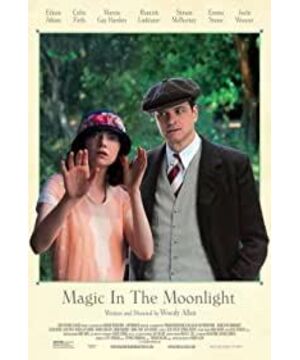It was roommate O who went to the movies together. I am a Ph.D. student in Western Art History, and my dissertation is on 16th-century Dutch painting. O's ex-boyfriend is a young and promising professor of marine biology. He has received NIH funding and tenure at a young age and loves art and philosophy. The two had been in a long-distance relationship for many years, but after O decided to drop out of school, moved to Illinois to work, and lived with her boyfriend two months later, they broke up quickly. And they did not quite part as friends.
On the way home after watching the movie, it was inevitable that we started chatting. After exchanging consolation that Colin Firth is in good shape, Olivia, a character who only appeared in the film for 2 minutes, was brought up. Olivia was Colin Firth's girlfriend/fiancee before she met Emma Stone. Mature, educated, logical, sophisticated. You would think her to be a perfect match or even soul mate for CF but such a reasonable girlfriend, in a movie with the word "Magic" in the title, naturally cannot A good start and a good end. After receiving a breakup call, she calmly did not cry or make trouble, and rationally analyzed "such a thing will happen sooner or later". For such a "sensible" reaction, most people's feeling should not be appreciation, but to further confirm that this Olivia is not cute.
I think what Woody Allen wants to express is nothing more than: the joy of the spiritual world, the miraculous moments in ordinary life, the beauty beyond the material world, the preciousness that has nothing to do with religion, but is indeed related to belief, and even the meaning of life. However, the setting of the characters and the direction of the plot always have the subconscious mapping of the main creator and even the audience. Just imagine if it was a love story between a successful female artist and a young male liar, would we still watch it with such peace of mind, of course. In the relationship between the sexes, reason, wisdom, power, and maturity seem to be deriable only in men, and lovely women should be, sensual, innocent, youthful, and beautiful.
For example, Colin Firth might think there is almost no hope for Emma Stone's brain (And I highly doubt they can have any deep and meaningful conversation), but his heart fell for her. It's passion; it's love at first sight. And we don' t even question the sincerity.
Olivia, the older and wiser woman, can't win affection from either Colin Firth or us. In a skit romance full of romanticism and nostalgia, the setting of the characters, but with the reality The expectations of the world are just right. The prototype in the real world is the drama of countless successful men breaking up with their wives for love.
Compared to another romance, Linklater's Before sunset/sunrise/midnight. Julie Depley is sensual, innocent, beautiful, but also neurotic, idealistic, and intelligent. The acquaintance of the two protagonists also has the element of "love at first sight". But what the audience can't forget is the two people's endless conversations about life, love, growth, art, and philosophy, as if this is the magic of love. Especially in the third part, two people who have entered middle age and have to face the simple real life every day still have love.
So, Moonlight is actually much more realistic than Midnight. Then I continued to talk with O about the philosophical metaphors in Bruegel's paintings.
View more about Magic in the Moonlight reviews











